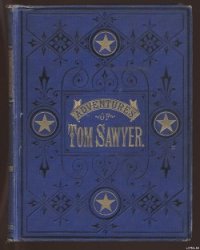Английский язык с Марком Твеном. Принц и нищий (Mark Twain. The Prince and the Pauper) - Twain Mark (читать хорошую книгу полностью .txt) 📗
'Thou art right (ты прав); say no more (не говори более); thou shalt see (ты увидишь) that whatsoever the king of England requires a subject to suffer under the law (что чего бы король Англии ни требовал от подданного вынести в соответствии с законом: «под законом»), he will himself suffer (он сам вытерпит) while he holdeth the station of a subject (пока занимает статус подданного).'
When the woman was called upon to testify before the justice of the peace (когда женщина была призвана, чтобы свидетельствовать = давать показания перед мировым судьей: «судьей мира»), she swore (она поклялась; to swear — клясться) that the small prisoner at the bar (что маленький заключенный на суде) was the person who had committed the theft (был человеком, который совершил кражу); there was none able to show the contrary (не было никого, способного показать противоположное), so the king stood convicted (так что король стоял = был приговорен; to stand — стоять). The bundle was now unrolled (узел был теперь развернут), and when the contents proved to be a plump little dressed pig (и когда его содержимое оказалось пухлым маленьким разделанным поросенком), the judge looked troubled (судья выглядел озадаченным), while Hendon turned pale (а Хендон стал бледным = побледнел; to turn — поворачивать(ся), становиться), and his body was thrilled with an electric shiver of dismay (и его тело было объято электрической дрожью испуга); but the king remained unmoved (но король остался недвижим), protected by his ignorance (защищенный своим неведением). The judge meditated (судья поразмышлял), during an ominous pause (в течение зловещей паузы), then turned to the woman, with question (затем повернулся к женщине с вопросом):
'What dost thou hold this property to be worth (во что ты оцениваешь эту собственность: «чего держишь ты эту собственность стоящей»)?'
The woman courtesied and replied (женщина сделала реверанс и ответила):
'Three shillings and eightpence, your worship (три шиллинга и восемь пенсов, ваша честь) — I could not abate a penny (я не могла бы сбавить ни пенни) and set forth the value honestly (и установить цену честно).'
The justice glanced around uncomfortably upon the crowd (судья взглянул вокруг тревожно на толпу), then nodded to the constable and said (затем кивнул констеблю и сказал):
'Clear the court and close the doors (очистите зал суда и закройте двери).'
quaint [kwe?nt], authority [o:`?Or?t?], judge [GAG]
HENDON forced back a smile, and bent down and whispered in the king's ear:
'Softly, softly my prince, wag thy tongue warily — nay, suffer it not to wag at all. Trust in me — all shall go well in the end.' Then he added, to himself: 'Sir Miles! Bless me, I had totally forgot I was a knight! Lord how marvelous a thing it is, the grip his memory doth take upon his quaint and crazy fancies!... An empty and foolish title is mine, and yet it is something to have deserved it, for I think it is more honor to be held worthy to be a specter-knight in his Kingdom of Dreams and Shadows, than to be held base enough to be an earl in some of the real kingdoms of this world.'
The crowd fell apart to admit a constable, who approached and was about to lay his hand upon the king's shoulder, when Hendon said:
'Gently, good friend, withhold your hand — he shall go peaceably; I am responsible for that. Lead on, we will follow.'
The officer led, with the woman and her bundle; Miles and the king followed after, with the crowd at their heels. The king was inclined to rebel; but Hendon said to him in a low voice:
'Reflect, sire — your laws are the wholesome breath of your own royalty; shall their source reject them, yet require the branches to respect them? Apparently, one of these laws has been broken; when the king is on his throne again, can it ever grieve him to remember that when he was seemingly a private person he loyally sunk the king in the citizen and submitted to its authority?'
'Thou art right; say no more; thou shalt see that whatsoever the king of England requires a subject to suffer under the law, he will himself suffer while he holdeth the station of a subject.'
When the woman was called upon to testify before the justice of the peace, she swore that the small prisoner at the bar was the person who had committed the theft; there was none able to show the contrary, so the king stood convicted. The bundle was now unrolled, and when the contents proved to be a plump little dressed pig, the judge looked troubled, while Hendon turned pale, and his body was thrilled with an electric shiver of dismay; but the king remained unmoved, protected by his ignorance. The judge meditated, during an ominous pause, then turned to the woman, with question:
'What dost thou hold this property to be worth?'
The woman courtesied and replied:
'Three shillings and eightpence, your worship — I could not abate a penny and set forth the value honestly.'
The justice glanced around uncomfortably upon the crowd, then nodded to the constable and said:
'Clear the court and close the doors.'
It was done (это было сделано). None remained but the two officials (никто не остался, кроме двух чиновников), the accused (обвиняемого), the accuser (обвинителя), and Miles Hendon (и Майлса Хендона). This latter was rigid and colorless (этот последний был застывшим и бесцветным = краска сошла с лица), and on his forehead big drops of cold sweat gathered (и на его лбу большие капли холодного пота собирались), broke and blended together (разбивались и смешивались вместе; to break — ломать(ся)), and trickled down his face (и стекали вниз по его лицу). The judge turned to the woman again (судья повернулся к женщине снова), and said (и сказал), in a compassionate voice (и сказал сострадательным голосом):
''Tis a poor ignorant lad (это бедный невежественный мальчик), and mayhap was driven hard by hunger (и, быть может, был движим сильно голодом; to drive — вести, двигать), for these be grievous times for the unfortunate (ибо эти = ныне тяжелые времена для неудачливых; to grieve — горевать); mark you (заметь), he hath not an evil face (он имеет не злое лицо) — but when hunger driveth (но когда голод преследует) — Good woman (добрая женщина)! dost know (знаешь ли ты) that when one steals a thing (что когда кто-то крадет вещь) above the value of thirteen pence ha'penny (выше стоимости 13 пенсов и полпенса) the law saith he shall hang for it (закон говорит, что он должен висеть = быть повешенным за это)?'
The little king started (маленький король вздрогнул), wide-eyed with consternation (с широко раскрытыми глазами от ужаса), but controlled himself and held his peace (но взял себя в руки и сохранил молчание; to hold — держать); but not so the woman (но не так /поступила/ женщина). She sprang to her feet (она вскочила на ноги; to spring — вспрыгнуть), shaking with fright (трясясь от страха) and cried out (и выкрикнула):
'Oh, good lack, what have I done (о Боже, что я наделала)! God-a-mercy (Господи Боже), I would not hang the poor thing for the whole world (я бы не повесила бедняжку ради целого мира; poor — бедный; thing — вещь, существо)! Ah, save me from this, your worship (ах, спасите меня от этого, ваша честь) — what shall I do (что буду я делать), what can I do (что могу я сделать)?'
The justice maintained his judicial composure (судья удержал свое рассудительное спокойствие), and simply said (и просто сказал):
'Doubtless it is allowable to revise the value (несомненно, позволительно пересмотреть стоимость), since it is not yet writ upon the record (так как она пока не записана в протоколе; writ — устар. вместо written от to write — писать).'
'Then in God's name call the pig eightpence (тогда во Имя Божье назовите поросенка восьмипенсовым), and heaven bless the day (и Небо да благословит тот день) that freed my conscience of this awesome thing (который освободил мою совесть от этой ужасной вещи)!'




